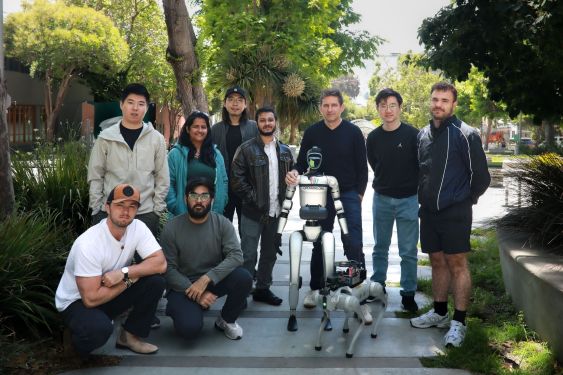Many companies are focused on building robots or the hardware components that help them move, grip objects, or interact with the world around them. Silicon Valley-based OpenMind, however, is working under the hood. The company is developing a software layer called OM1, designed to act as an operating system for humanoid robots. OpenMind likens itself to Android for robotics, as its software is open and hardware-agnostic.
Stanford professor Jan Liphardt, the founder of OpenMind, explained that while robots have long been capable of repetitive tasks, the rise of humanoids in roles requiring human-like interaction—such as home assistance—demands a new operating system that thinks more like a person.
“All of a sudden, this world is opening where machines are able to interact with humans in ways I’ve certainly never before seen,” Liphardt said. “We’re very much believers here that it’s not just about the humans, but we really think of ourselves as a company that is a collaboration between machines and humans.”
Recently, OpenMind introduced a new protocol called FABRIC, enabling robots to verify identity and share context and information with each other. Unlike humans, machines can learn almost instantly, Liphardt noted. This means better connectivity between robots will allow them to train and absorb new information more efficiently.
For example, robots could share language data among themselves, helping them communicate in multiple languages without needing direct human instruction for each one.
“Humans take it for granted that they can interact with any other human on Earth,” Liphardt said. “We’ve built infrastructure that allows us to trust, communicate, and collaborate. Machines, of course, are going to be no different.”
Founded in 2024, OpenMind is preparing to ship its first fleet of 10 OM1-powered robotic dogs by September. Liphardt emphasized the importance of releasing the technology early and refining it based on user feedback.
“We fully expect the humans hosting these quadrupeds to come back with a long list of improvements,” he said. “Then it’s up to us to iterate and enhance the machines quickly.”
The company recently secured $20 million in funding, led by Pantera Capital, with participation from Ribbit, Coinbase Ventures, Pebblebed, and other strategic and angel investors.
Now, OpenMind is focused on deploying its technology in homes and refining the product through real-world use.
“The most important thing for us is to get robots out there and gather feedback,” Liphardt said. “Our goal is to conduct as many tests as possible, so we can rapidly identify where today’s robot capabilities best align with human needs.”

